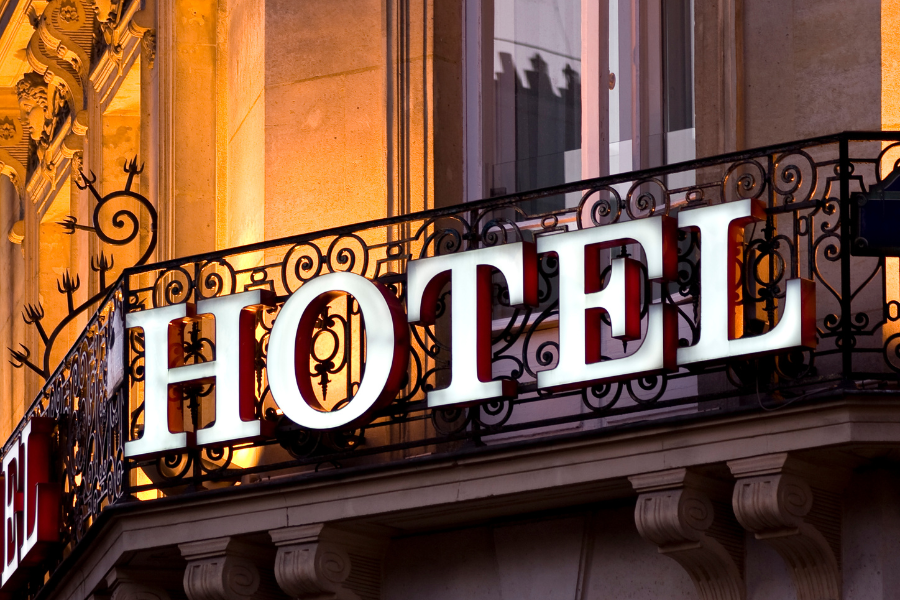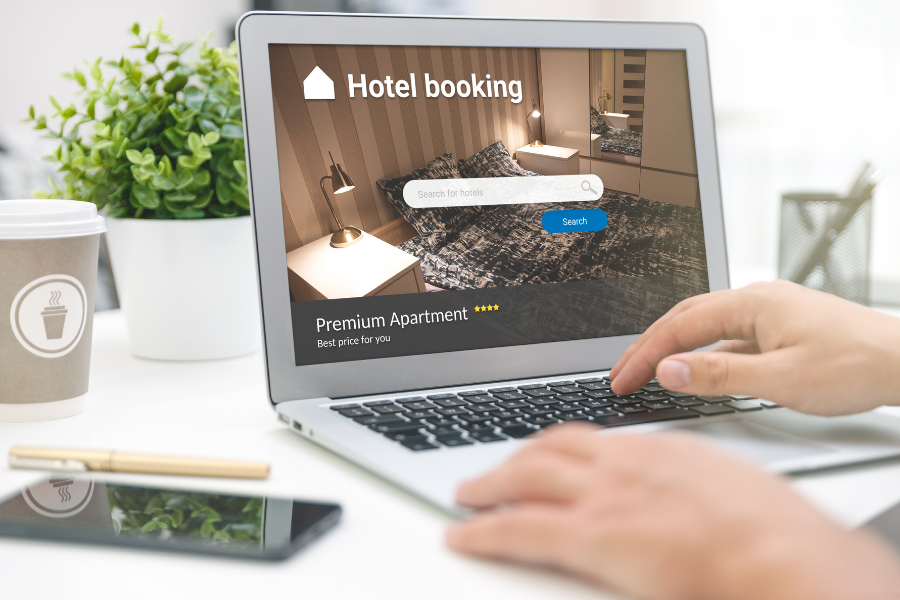
Hotel Inventory Management 101: An Introduction
Inventory management is critical to running a successful business, regardless of size or industry. Efficiently managing inventory ensures smooth operations and contributes to optimizing costs and maximizing profits. That also applies to hospitality.
Efficient inventory management is crucial for hotels to deliver exceptional guest experiences while maintaining profitability. We encourage you to read on if you want to learn more about hotel inventory management and hotel inventory management software.
Contents
- What is hotel inventory?
- What is hotel inventory management?
- Types of inventory management
- Benefits of hotel inventory management
- How do hotels maintain inventory?
- Effects on costs
- Key factors for hotel inventory management
- What is a hotel inventory management system?
- How to increase the effectiveness of your inventory management?
What is hotel inventory?
The hotel industry has evolved over the years, adapting its offerings to meet the needs of customers and the increasingly demanding business environment and modern travel management methods. While initially, hotel inventory referred only to the number of rooms available for sale or distribution, the term has a much broader meaning today.
Today, hotel inventory refers to all resources used daily in a hotel – from rooms and items used for cleaning, such as linens and laundry, to restaurant supplies, various types of equipment, and services available, for example, in the spa area or gift shops.

What is hotel inventory management?
Hotel inventory management entails the intricate tasks of procuring, organizing, and dispensing a hotel’s assets and merchandise. Within the realm of the hotel industry, the primary components of this inventory consist of rooms while encompassing a broader range of items such as raw materials, finished products, and on-site amenities available in restaurants.
The fundamental objective behind hotel inventory management is to meticulously regulate the pricing, distribution, and sale of rooms, hotel products, and supplementary services. Additionally, it entails replenishing various goods and striking a balance to avoid excessive stockpiling.
[Read also: What Are Travel Meta Search Engines?]
Types of inventory management
The hotel industry encompasses various aspects of inventory, which can be classified into two main categories: primary and secondary hotel inventory.
The primary inventory of a hotel comprises rooms, which serve as the primary source of revenue. Renting out rooms allows hoteliers to generate income from them and other available inventory items and services. Therefore, hotel managers must have real-time information on room occupancy and availability to manage their operations effectively. Additionally, optimizing prices is essential for the property’s business strategy to maximize room occupancy and revenue.
On the other hand, secondary inventory encompasses a wide range of items and services. This includes gift shops, restaurants, room supplies, and ancillary offerings.
When it comes to secondary inventory, striking the right balance is essential. Stocking up on items that guests do not use can result in financial losses. Conversely, failing to provide necessary items or services that guests require can lead to missed revenue opportunities and negatively impact their overall experience.

Benefits of hotel inventory management
Proper inventory management brings many benefits to hotels. The issue is undeniable. However, the key among the whole set of advantages are:
Optimal allocation of resources
Effective inventory management enables hotels to properly and cost-optimally allocate resources, minimizing losses and maximizing profitability. For example, by accurately tracking room occupancy and demand patterns, hotels can anticipate periods of high demand, incur prices, and prepare promotional packages during the low season.
Greater guest satisfaction
Effective inventory management helps hotels meet guest expectations by ensuring the availability of desired amenities and services. For example, hotels can quickly restock minibars, toiletries, and other in-room items by keeping accurate inventory records, improving the overall guest experience.
Cost reduction
Proper inventory management allows hotels to minimize excess or shortage costs. Dynamic pricing is critical in this regard, increasing the profitability of a lodging facility and maximizing profits throughout the period, regardless of the month. In addition, by monitoring inventory levels and implementing just-in-time ordering, hotels can reduce storage costs, prevent product obsolescence and minimize the need for emergency purchases at higher prices.
Streamlined operations
Effective inventory management streamlines hotel operations, increasing productivity and reducing operational complexity. For example, implementing automated system such as hotel channel manager, which track inventory levels and trigger reordering when thresholds are reached, can save time and effort for staff who would otherwise have to monitor inventory levels manually.
Data-driven decision making
Inventory management provides valuable data that can help make strategic decisions. By analyzing inventory trends, hotels can identify popular items, seasonal fluctuations, and demand patterns, enabling them to make informed decisions about pricing, promotions, and menu offerings.

How do hotels maintain inventory?
Each hotel and the inventory it holds is unique. Nevertheless, the hotel inventory management methodology can be applied universally. The scope of the approach depends on factors such as the size of the hotel, the range, the variety of its assets, and occupancy rates.
So how does the inventory management process work step by step?
Gather data on the hotel’s current inventory
It is a good idea to start the entire process by gathering hotel inventory data. Documenting all rooms and every additional inventory item available on the premises is essential.
This includes many things, including food and beverages, linens, and cleaning supplies. The main goal is to create a comprehensive list of hotel inventory, facilitating streamlined procedures at subsequent stages.
Comparing inventory with occupancy rates
Accurately managing a hotel’s core inventory requires comparing room offerings with applicable occupancy rates. The goal is to optimize resource utilization aimed at increasing revenue generation.
Therefore, it is necessary to identify rooms often not occupied, particularly luxury suites, which can be offered as affordable upgrades. In addition, this information helps optimize the distribution network.
Evaluate guest buying behavior
When it comes to effectively managing a hotel’s secondary inventory, it’s crucial to delve into hotel guests” shopping behavior. The key is determining whether some items and services are hard to sell. It’s also worth considering whether certain things are consistently below desired inventory levels. Gaining insight from this data requires correctly understanding guest preferences and needs.

Identify patterns
The data collected will ultimately identify patterns, providing valuable insight for effective management. Recognizing these lets you stay ahead of the competition much more quickly. For example, based on the information gathered in this way, the hotelier will know when to expect fluctuations in occupancy and which items require regular replenishment.
Use data to improve your hotel’s inventory management
With this extensive data, hotel owners can make better and more informed decisions. These insights will help property owners optimize hotel inventory, maximize revenue and improve guest satisfaction.
[Read also: How To Build Travel Meta Search Engine: A Step-By-Step Guide]
How does inventory management affect a hotel’s operating costs?
Inventory management plays a crucial role in determining a hotel’s operating costs. Here are some ways in which inventory management affects a hotel’s operating costs:
Stocking and Purchasing
Effective inventory management ensures that the hotel maintains appropriate inventory levels. The hotel can avoid overstocking or understocking items by accurately forecasting demand and monitoring inventory levels.
Overstocking ties up capital and increases storage costs, while understocking can result in lost sales and dissatisfied customers. By managing hotel inventory and optimizing stock levels, the hotel can minimize purchasing, storage, and waste costs.
Storage Costs
Hotels require storage space to house their inventory, including linens, toiletries, cleaning supplies, food and beverages, and other operational supplies.
The size and layout of the storage area and the cost of renting or owning the space contribute to the hotel’s operating costs. Effective inventory management helps maximize storage space utilization, ensuring efficient use and minimizing storage costs.
Spoilage and Obsolescence
In the hotel industry, certain items have a limited shelf life or can become obsolete, such as perishable food items or outdated technology. Proper inventory management practices help minimize spoilage and obsolescence costs by implementing first-in-first-out (FIFO) rotation, monitoring expiration dates, and maintaining updated inventory records. As a result, a hotel can lower its operating costs by reducing waste and minimizing obsolete inventory.

Vendor Relationships and Negotiations
Effective inventory management involves establishing solid relationships with suppliers and optimizing procurement processes. By maintaining accurate inventory records and sharing demand forecasts with suppliers, hotels can negotiate favorable pricing, discounts, and terms. Timely and efficient deliveries also help minimize emergency restocking, reduce rush shipping costs, and avoid operational disruptions.
Staffing and Labor Costs
Inventory management affects staffing and labor costs in several ways. Efficient inventory systems streamline processes such as receiving, storing, and issuing inventory items, reducing the time and labor required.
Automation technologies, like barcode scanners and inventory management software, can improve efficiency further. Moreover, hotels can schedule their staff accordingly by accurately tracking inventory levels and demand patterns, avoiding overstaffing during slow periods and understaffing during busy periods.
Loss Prevention
Inventory management helps prevent loss and theft, which can significantly impact a hotel’s operating costs. Implementing security measures, such as access controls, surveillance systems, and inventory tracking systems, can deter theft and improve inventory accuracy. In addition, minimizing inventory shrinkage reduces the financial burden of replacing stolen items and helps maintain profit margins.

What are the main factors of hotel inventory management?
Having delved into the concept of hotel inventory management, let’s now examine the main factors that affect it.
Room expenses
First and foremost, in hotel inventory management, a comprehensive understanding and calculation of room expenses, as well as the cost of an unoccupied bed, is essential.
Fixed costs include various items, such as electricity (lighting, televisions, telephones), water supply, air conditioning/heating, general overhead, payroll, and internet. In addition, variable costs should be considered, including, but not limited to, laundry services, housekeeping, breakfast, minibar, and room service. Understanding these figures helps strike a balance between covering expenses and maximizing revenue by making inventory available during periods of high demand.
Of course, the price of selling a room through your reservation system will differ from selling through an online travel agency (OTA). Therefore, it is critical to understand these costs to accurately price rooms for distribution at different times throughout the year.
This brings us to another key factor in successful inventory management: pricing.
Hotel room pricing
Undoubtedly, pricing is one of the most volatile elements in inventory management. During peak seasons, it is necessary to get the highest possible value for each room, while during the off-season, discounts, and incentives must be offered to stimulate demand and occupancy. Hotels use dynamic pricing strategies to influence supply and demand at any time. Adjusting and changing prices can optimize inventory and achieve maximum occupancy at the most favorable rate.
By analyzing inventory regularly, you can make necessary adjustments, price against the competition, streamline revenue processes, and ensure guests feel they are getting the best value for their money.

Distribution
Distribution plays a crucial role in maximizing revenue by facilitating the delivery of inventory directly to potential guests. In today’s landscape, it isn’t easy to imagine a hotel not listed on various online distribution channels and search engines, including OTAs and GDSs.
However, monitoring inventory distribution through channels requires both time and financial resources. However, uploading and promoting your inventory to the various booking channels is worthwhile, ensuring careful data tracking and implementation of requests.
To effectively manage distribution, it is essential to closely monitor room bookings for the various channels, ensuring that a minimum number of rooms are sold for each channel at any time. In this way, you can identify unsold rooms, determine the appropriate channel to display them and implement promotional strategies when necessary to optimize inventory.
Market segmentation
Market segmentation is also one of the most important factors to consider because, with an in-depth understanding of this concept, you can set reasonable prices and effectively distribute your hotel across channels.
Market segmentation refers to the requirements, preferences, and willingness to pay in a given market. For example, the price someone is willing to pay for a stay at a five-star hotel in Mexico differs from the price they would pay for the same hotel in New York.
Understanding the market allows for setting market-specific prices and effectively distributing rooms through the appropriate channels. In addition, hoteliers need to adapt to customer needs and preferences to foster brand loyalty and increase revenue.

What is a hotel inventory management system?
A hotel inventory management system is a software solution designed to streamline and optimize the management of hotel rooms, services, and resources. It helps hoteliers track and control their inventory, including rooms, amenities, and other assets.
The system enables hotels to manage reservations, availability, pricing, and bookings online and offline channels. In addition, it helps maximize occupancy rates, minimize overbookings, and enhance overall operational efficiency by providing real-time data and automation capabilities.
Ultimately, a hotel inventory management system empowers hotel owners and managers to organize and allocate their resources effectively, improving guest satisfaction and increasing revenue.
[Read also: A Step-by-Step Guide: How to Start an Online Travel Agency (OTA)]
Hotel inventory management software
Hotel inventory management software is an automated solution that facilitates efficient hotel inventory management. This software enables hoteliers to oversee and control various aspects of their inventory, including rooms, services, and other resources. It assists in streamlining operations by automating room reservations, availability tracking, pricing management, and booking management across different distribution channels.
In addition, the software provides real-time data and analytics to aid decision-making, allowing hotel owners and managers to optimize occupancy rates, minimize instances of overbooking, and enhance overall operational productivity. By effectively organizing and allocating resources, hotel inventory management software helps improve guest satisfaction and boost hotel revenue generation.

What is the best hotel management software?
Determining the “best” hotel management software depends on a hotel’s specific needs and preferences. However, here are brief descriptions of the software it’s worth mentioning:
Operto
Operto is a comprehensive hotel operations automation platform. It offers digital check-in/out features, automated messaging, noise monitoring, energy management, and access control systems integration. Operto focuses on enhancing guest experiences and improving operational efficiency.
Mews
Mews is a cloud-based hotel property management system (PMS) that provides a range of functionalities, including reservations, front desk operations, invoicing, housekeeping, and reporting. It emphasizes seamless integrations with other hotel systems and offers a user-friendly interface.
Cloudbeds
Cloudbeds is a popular cloud-based hotel management platform that offers property management, channel management, hotel booking engine, and revenue management tools. It provides a unified solution for hotel operations and integrates with various third-party systems.
eZee Absolute
eZee Absolute is a user-friendly hotel management software with modules for reservations, front desk operations, accounting, and online booking management. In addition, it offers mobile apps, integrations with various online bookings and travel agencies, and comprehensive reporting capabilities.
StayNTouch
StayNTouch offers a mobile-friendly hotel property management system. It focuses on enabling mobile check-ins, guest engagement, housekeeping management, and analytics. In addition, StayNTouch emphasizes flexibility and scalability for hotels of different sizes.
WebRezPro
WebRezPro is a cloud-based hotel property management system with many features, including reservations, front desk operations, housekeeping, accounting, and reporting. It provides integrations with various systems and emphasizes ease of use and automation.
Little Hotelier
Little Hotelier is a property management system for small hotels, bed and breakfasts, and inns. It offers features such as reservations, front desk operations, online booking management, guest communication, and reporting.
While these are well-regarded hotel management software options, it’s vital to thoroughly assess their features, pricing, and compatibility with a hotel’s specific requirements before deciding.

How to increase the effectiveness of your inventory management?
To increase the efficiency of inventory management, rely on the following:
- Accurate forecasting based on historical data, market trends, and customer demand analysis to prevent overstocking or out-of-stocks.
- Centralized inventory control across all channels in real-time using modern systems and technology.
- Regular audits of inventory and physical stock levels to ensure accuracy between recorded inventory levels and actual levels.
- ABC analysis, or classification of inventory items based on their value, appropriately prioritized management actions, and Just-in-Time (JIT) inventory.
- Effectively manage suppliers, maintaining good relationships and negotiating favorable terms, including competitive pricing, flexible delivery schedules, and reliable quality.
- Use real time inventory management software or system to provide real-time data, automate processes, and integrate with other systems.
- Regularly review sales patterns and analysis of customer preferences to anticipate fluctuations in demand and adjust room prices.
By implementing these best practices, you can increase inventory management efficiency, minimize costs, optimize inventory levels, and improve the overall operational efficiency of your hotel property while increasing guest satisfaction.
Related Posts
- How To Build Travel Meta Search Engine: A Step-By-Step Guide
- Best Travel Management Solutions You Must Know
- Yield Management: What It Is and The Best Strategies
- How to Choose the Best Travel Agency Software to Maximize Your Revenue
- 11 Travel Technology Trends Emerging in the Tourism Industry in 2024
Thank you for taking the time to read our blog post!